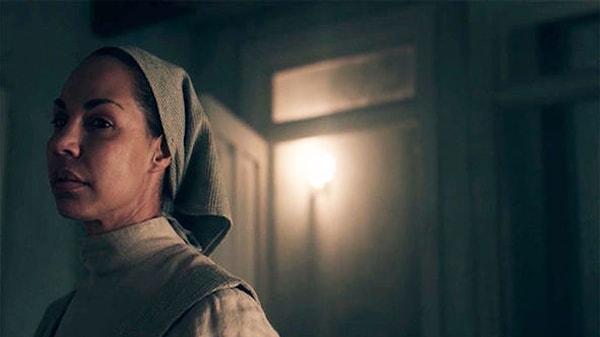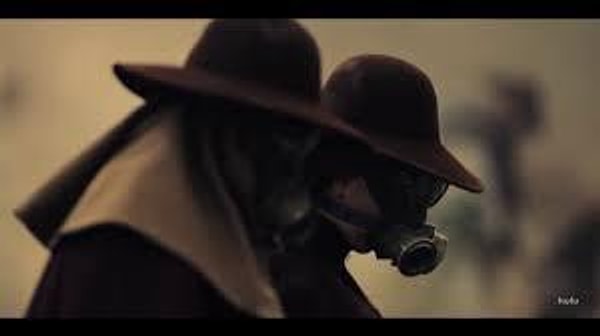We've only been given a small glimpse into life in the colonies--and the series focused entirely on the irradiated wastelands in the Southwest, but the show took pains to help us understand the structure behind their lives, which would've dominated their existence. Every morning the unwomen would be led through prayer, knowing that their deaths would soon be at hand, and ask God to forgive them for their sins. Gileadeans did not believe that you could simply ask Jesus into your heart and be saved. They followed an old European philosophy, common in Mennonite and Amish communities. It's also a huge part of Islam. The idea was that God had all the power. He chose who to send to heaven, who to condemn, who to curse, and who to bless, and it was not for us to know his ways. Followers would live their lives as obediently as they could, keep God in their hearts, and hope that He saw fit to redeem them. Of course, chances were bleak. Everyone was born in sin, and very few were chosen to live in God's presence when they died. Most could fully expect to be sent to Hell, even if they lived righteous lives, unless of course they were able to obtain some sort of power or wealth in Gilead, which would have surely been a sign that God had blessed them. They acted like cowering servants kneeling before a malevolent master, hoping that he'd throw out some scrap of food from his giant banquet table. That mindset came with a hefty dose of self-deprecation and over-exaggerated humility. They'd essentially say, 'I know you hate me, and I deserve it, but I hope that you can find it in your heart to help me.' That was the general attitude in the more dangerous colonies. It defined them.
Many people assume that Gilead irradiated the colonies during the war. But that's not the case at all. The Sons of Jacob were greedy. They wanted to pillage the Southwest, not destroy it, and they were never going to stop with the United States. They believed in a principle called Christian dominion, which gave them the God-given right to take whatever they wanted. It didn't take long for the United States to realize what they were dealing with. So, when it was obvious that they were going to be defeated, they decided to detonate a portion of their nuclear stockpile in order to keep Gilead from becoming a nuclear power. They couldn't detonate the whole that. That would reign in the apocalypse, but it put Gilead on equal ground with the rest of the world. They were just as vulnerable and powerless. There was no credible threat of retaliation if Russia or China decided to bomb them, meaning they could be taken down. Unfortunately, that meant sacrificing Arizona, parts of California, New Mexico, and the surrounding areas.
These are dry, mountainous regions. Water was sparse. Cities were mostly built in valleys where they could tap into streams from the mountains or divert rivers and create canals. Rather than build costly shipping operations and send water across the country, Gilead would've likely made use of existing infrastructure, like the Colorado River and underground aquifers. This meant that the unwomen would've toiled in places like Phoenix, Tucson, and Las Vegas, where the land was flat and Gilead had the resources to at least make sure that they didn't die from dehydration. Temperatures would have been unbearable. In these places--even farther north, like in Nevada--they'd work in fatal heat--even as high as 40 degrees celsius or 115 fahrenheit during the summer. During the winter, the hills would be slick with frost and sometimes even ice. Dry air allows for a level of contrast that can't be found in more temperate climates. Regardless of where they were posted, the climate would have been unforgiving, never temperate, and rarely mild, and they weren't given the kind of gear they would need to feel comfortable.



